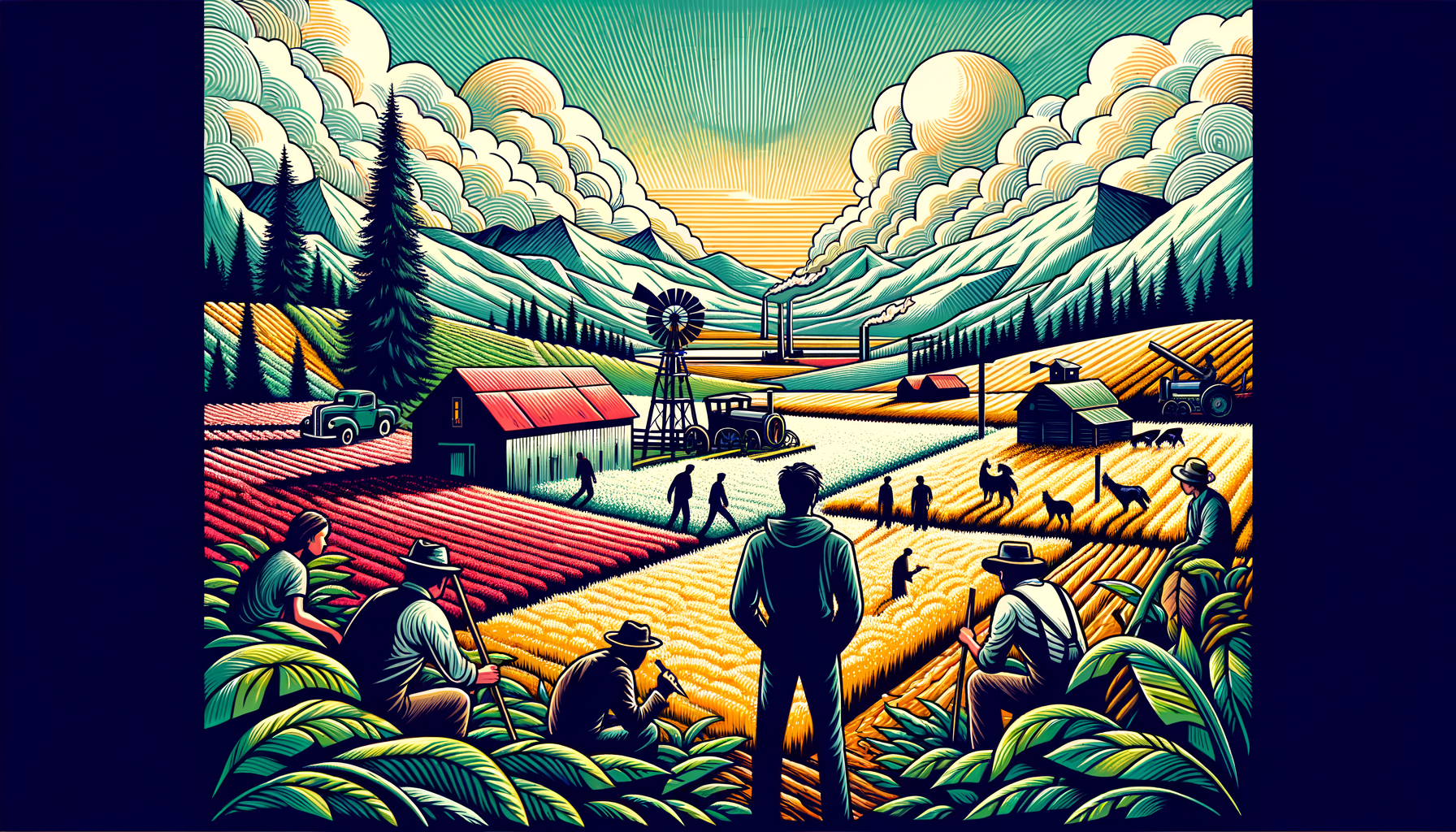It all started with a book I picked up for $2.50 at a used bookstore in Charleston, West Virginia. The cover was worn, edges frayed, and the inside pages smelled a bit like a mix of mildew and cigarette smoke. Not exactly the sort of thing that screams “life-changing,” right? But that book—John Steinbeck’s East of Eden—did just that. It cracked something open in me, a door I didn’t even know was there. And while I’m sure Steinbeck wasn’t thinking about relationships when he scribbled that masterpiece, it turns out there’s a world of lessons about love, identity, and connection tucked between those pages.
So, grab a cup of coffee (or sweet tea, if you’re more my people) and let me tell you how one book from a dusty shelf in my home state became the cornerstone of my approach to relationships.
Timshel, or The Power of Choice
Let me start with the word that shook me to my core: “Timshel.” If you’ve read East of Eden, you’re already nodding. If you haven’t, hang with me—it’s not as abstract as it sounds. Essentially, Steinbeck’s interpretation of this Hebrew word boils down to this: “Thou mayest.” It’s the idea that, while we’re imperfect, we each have the power to choose our path, to try again, to chart a new course every single day.
Now, let me tell you what that has to do with my dating life. Back in my twenties, I had the bad habit of treating relationships like coal mining: repetitive, physically exhausting, and with the occasional explosion. I fell into the same patterns over and over, dating people who felt familiar but didn’t challenge me. I thought I didn’t have much of a say in how things would go. “This is just who I am,” I’d shrug. But Steinbeck’s Timshel slapped me upside the head.
It was a reminder that I wasn’t just a passive character in my own story. The power to change, to grow, to love better—that was on me. So, the next time I felt like texting someone purely because they felt “safe,” I asked myself: Am I choosing this person because I truly want to, or because it feels easier than risking rejection with someone I’m actually excited about?
Spoiler alert: I started making better choices.
The Cathy Lesson: Beware the Red Flags You Ignore in the Name of Passion
If there’s one character I’ve been terrified of encountering in real life, it’s Cathy Ames. For those who haven’t read East of Eden, Cathy is… well, she’s manipulative, cruel, and operates with all the emotional warmth of a coal truck in February. And while she’s on the extreme end of the spectrum, a lot of us have met our fair share of mini-Cathys and Cathy-adjacents. Charming? Absolutely. Pretty? Sure. But equally capable of making you question your own sanity.
At one time in my life, I was a certified “ignore-the-red-flags” professional. I’d explain away the small lies, the hot-and-cold behavior, the emotional unavailability. “She doesn’t text back because she’s busy,” I’d tell myself. Or “She’s just intense—maybe that’s how she shows love.”
Here’s what East of Eden taught me: you can’t turn someone who thrives on destruction into a healthy partner. Just as Cathy’s darkness consumed everything in her orbit, toxic behaviors—no matter how packaged—will do the same to a relationship. Passion is all well and good, but not when it’s fueled by drama and manipulation. Learn to read the signs before getting too deep into the story.
Love Is Messy and Beautiful—Lean In
One of my favorite threads from East of Eden is the relationship between Sam Hamilton and his wife, Liza. Sam—a dreamer and joker—and Liza—a strict, devout woman—make the unlikeliest of pairs. Yet somehow, in their fiery, complex, and imperfect way, they make it work.
This gave me pause because I, like many folks (thanks, Hollywood), had fallen for the idea that true love meant some perfect union where both people just… get each other. But after reading Steinbeck’s depiction of this unlikely match, I realized something: love isn’t about finding someone who perfectly matches you. It’s about learning to navigate each other’s quirks and imperfections—and sometimes even celebrating them.
If you’re waiting for a sparkly, conflict-free fairy tale, let me save you some heartache and an Amazon Prime subscription: real love is messy. It means arguments and apologies, compromise and growth. And trust me, leaning into the messiness is far more fulfilling than wishing for perfection. Some folks are jazz, some are bluegrass. Beautiful things happen when you figure out how to make your own duet.
We All Want the Same Thing, Really: To Be Seen
At its heart, East of Eden is about the universal longing for acceptance and understanding. Every character, whether they realize it or not, is fighting the same battle: the need to feel truly seen. And honestly, isn’t that what we’re all searching for in relationships?
I used to think relationships were about locking in compatibility (hello, Myers-Briggs test phase). But what they’re really about is this: finding someone who sees you, scars and all, and wants to stick around anyway. When my now-wife and I started dating, I remember the exact moment I knew she saw me for who I was. We had been sitting by the coast, watching storm clouds roll in, and she turned to me and said, “I think you’re scared of staying in one place—but it’s okay. I’m not going anywhere.”
She nailed it. That stripped-down, vulnerable part of me I hadn’t even admitted to myself? She saw it, and she didn’t flinch. I’m telling you: that’s where connection lives.
The Best Stories Teach Us About Ourselves
Here’s the thing about books like East of Eden: they sneak up on you. Maybe you think you’re reading a story about a family feud, or an exploration of good and evil, and next thing you know, you’re questioning if the way you love people is rooted in your fear of abandonment. Fun, right?
But here’s the thing—relationships are a lot like the books we love. They expose things about ourselves we’d otherwise keep packed away. They nudge us toward self-reflection, growth, and yes, the occasional plot twist. And like a good book, the best relationships don’t have to tie everything into a neat bow to be worthwhile.
Conclusion: Write Your Next Chapter
Timshel. I come back to that word whenever life—and love—starts to feel overwhelming. Every day, it reminds me we have choices. To communicate instead of simmer in silence. To show up even when it’s hard. To grow instead of hold onto what’s comfortable but no longer serves us.
If you’re standing on the edge of some big relationship decision, or even just wondering why you keep chasing the Cathys of the world, take a deep breath and remind yourself: you’ve got the pen. You can write the next chapter. And with a little courage, maybe, just maybe, it’ll be the best one yet.




















